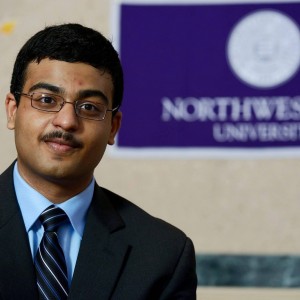Year: Senior
Major: Economics
CFS Program: Field Studies in Public Health
This spring I’m working under the Northwestern Transplant Outcomes Research Center (NUTORC), a research wing under the Comprehensive Transplant Center at Northwestern Memorial Hospital. My work deals with using relatively new machine learning methods to understand why a certain cohort of end stage liver disease patients deemed “low risk” by current clinical tests are not surviving as expected.
One of the most interesting realizations that I had working on my research project at NUTORC were the benefits and pitfalls of “Big Data.” It is very true that there are life-saving insights currently hidden in the mountains of patient data and indeed, when evaluated with the keen eye of a subject matter expert, “Big Data” analytics offer a lot for the future of medicine. Here we are focusing on improving the predictive capabilities of a clinical test – but analytics like these could and indeed have (by others) been used to create personalized therapeutics by leveraging the sheer magnitude of data we have sitting in our medical records.
Of course there are downsides to using “Big Data” to improve patient care – you can gather 100 insights from a deep dive interview with 10 patients, 10 families, or 10 healthcare providers. And of course there are those intractable environmental and social determinants – variables that our CFS public health class has helped me understand.
I’m looking forward to a new age of medicine that is able to leverage the power of “Big Data” while ensuring that we stay focused on the patient’s perspective (his/her psycho-social, environmental, and their medical struggles). As someone who aspires to be involved in the healthcare field, I hope to be further immersed in these two seemingly contrasting fields – CFS and NUTORC have given me a great point to start from.
